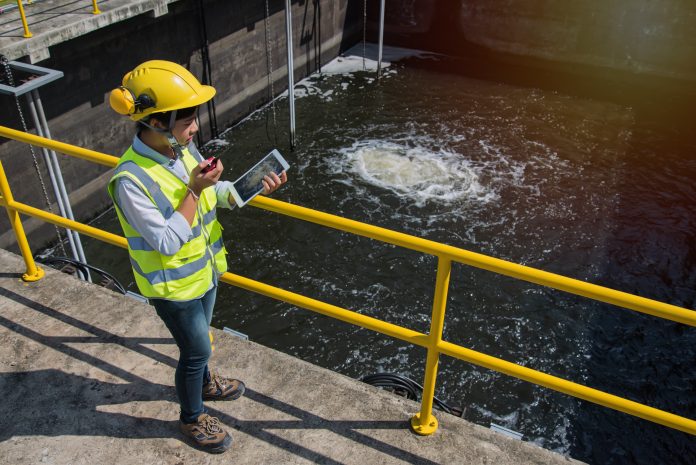Addressing the challenges faced by the water industry head-on requires a skilled workforce capable of innovation and adaptation.
The UK water industry operates within a regulatory framework overseen by bodies such as Ofwat, the Environment Agency, and Drinking Water Inspectorate, making compliance and operational excellence non-negotiable. Furthermore, the sector is committed to ambitious environmental targets, including net-zero emissions by 2030. Achieving these goals necessitates a workforce that is not only skilled in traditional water management practices, but also in emerging technologies and sustainable practices.
This blog outlines a strategic approach for training new employees and upskilling the existing workforce, with a focus on leveraging apprenticeships as a key tool for talent development.
Training New Employees
When welcoming new employees, particularly new entrants to the sector, it is important to provide them with the underpinning knowledge and practical skills they need to work in the water industry and perform their roles to a high standard.
Introduction to the Sector
Begin with comprehensive inductions that contextualise the water industry within the broader environmental and regulatory landscape of the UK. This foundation helps new entrants to the sector understand the importance of their roles and the impact of their work.
Technical Training and Safety
Given the operational complexities and safety considerations of the water industry, technical training is paramount. This includes both theoretical understanding and practical skills in areas such as Water Treatment, Water Networks, and Emergency Response Protocols.
Leveraging Apprenticeships
Apprenticeships offer a structured pathway for new employees to gain hands-on experience, while achieving recognised qualifications. Level 2 apprenticeships, such as those delivered by Watertrain, provide an excellent entry-level pathway for newcomers to the water industry.
Upskilling Existing Employees
Upskilling existing employees has become a paramount strategy for organisations to unlock untapped potential, minimise skills gaps, increase innovation and boost morale across the workforce.
Skills Audits and Personal Development Plans
Conduct regular skills audits to identify gaps and opportunities for upskilling within your existing workforce. Personal development plans should then be tailored to align individual aspirations with organisational needs, facilitating career progression and retention.
Watertrain’s bespoke competency assessment system, Occupational Competency Gateway (OCG), can help with gaining a true picture of competence across the entire workforce.
Continuous Learning Culture
Promote a culture where continuous learning is valued and supported. This can include providing access to online courses, workshops, and seminars relevant to the water industry’s evolving demands, such as digital literacy, data analysis, and sustainability practices.
Technical Apprenticeships and Qualifications
For existing employees, technical apprenticeships and qualifications allow them to upskill their knowledge and skills to specialise further or transition into new roles within the organisation. There is a wide range of technical apprenticeships and qualifications available for the water industry and Watertrain has seen first-hand the benefits that they provide for both employers and learners – with many achieving promotion following their successful completion of training.
Measuring Training Success
To ensure the effectiveness of your training and development programmes, establish clear metrics for success. This could include employee retention rates, progression through training levels, and feedback from participants. Regularly review and adapt your strategies to meet the changing needs of the workforce and the industry.
Bespoke competency assessment such as OCG, also provides an opportunity to gain an accurate understanding of knowledge and skills retention following the delivery of a training programme.
The Value of Apprenticeships
Apprenticeships are structured training programmes that combine on-the-job learning with related classroom instruction. This model not only benefits the apprentice by providing hands-on experience and a pathway to certification, but also offers organisations a tailored approach to developing a highly skilled workforce committed to the industry’s standards and advancements.
Apprenticeships have now adapted to offer an employer-led delivery model, which aims to meet the needs of the employer, the sector, and the economy more widely. Since the introduction of the Apprenticeship Levy, organisations in England can access apprenticeships through monies in their Digital Apprenticeship Service (DAS) account or through Co-Investment Funding if they do not pay the Apprenticeship Levy.
To learn more about Watertrain’s apprenticeships and qualification programmes for the water industry, please visit www.watertrain.co.uk. To arrange a conversation to discuss your training needs, contact info@watertrain.co.uk.



